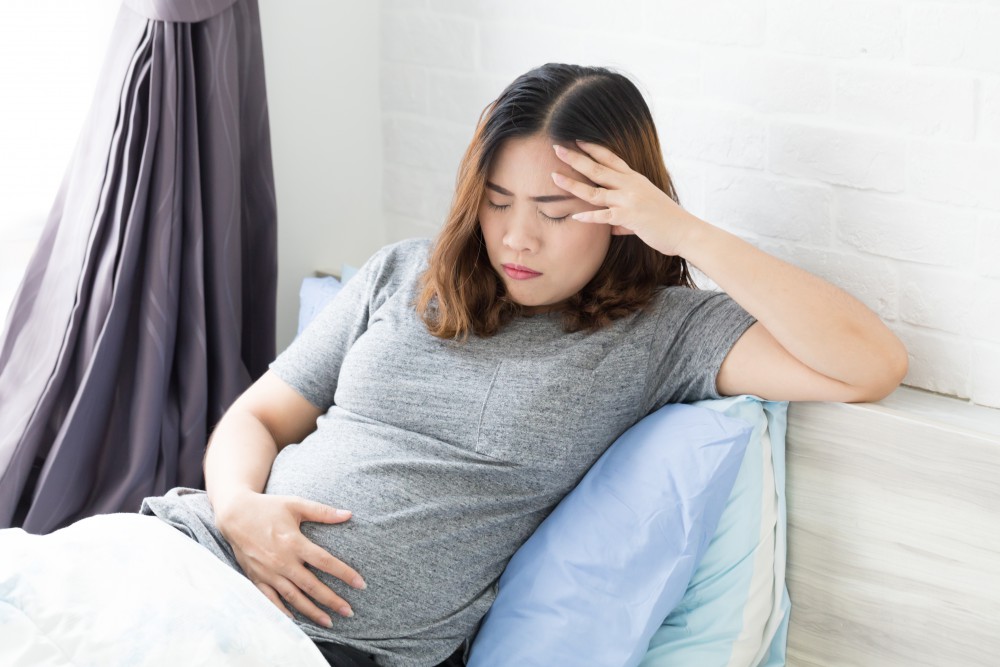Morning sickness is one of the early pregnancy symptoms before a missed period that clues some moms-to-be in to the fact that they’re pregnant. Suddenly, keeping breakfast down is a lot harder than it used to be, and sometimes morning sickness isn’t even limited to the first third of the day. Many women feel sick to their stomachs in the afternoon or even at night, but it’s still a completely normal symptom of pregnancy.
However, there is a severe form of morning sickness called hyperemesis gravidarum that is not entirely normal, especially if it occurs in the second trimester. Research has shown that the condition could cause health risks in both the mother and her baby, especially if she feels most ill in the second trimester.
The dangers of HG
One recent study from researchers at Uppsala University’s Department of Women’s and Children’s Health, published in BJOG: An International Journal of Obstetrics and Gynaecology, found that women who were hospitalized for HG between the 12th and 21st weeks of pregnancy were twice as likely to develop preeclampsia
, three times more likely to experience placental abruption (where the placenta separates from the wall of the uterus), and 1.4 times more likely to give birth to a baby with low birth weight compared to women who didn’t experience the condition.
Other studies have linked HG to an increased risk of preterm birth and psychological disorders like anxiety, depression or bipolar disorder in children. The reasons behind the increased risks aren’t clear, but some experts speculate that the poor nutrition and insignificant weight gain that HG often cause have an effect.
The differences between HG and morning sickness
The majority of pregnant women experience morning sickness during pregnancy, but only about 1 percent experience HG. Knowing how to tell the difference between the two is important, as it could clue your health care provider in to the condition and help you get the treatment you need to potentially avoid complications.
While morning sickness is sometimes accompanied by vomiting, HG always results in severe vomiting. Morning sickness tends to involve nausea that eventually subsides, whereas someone with HG experiences nausea that doesn’t go away. When those with morning sickness do vomit, they’re often able to stay hydrated and keep some food down, like bland crackers. Women with HG often become dehydrated and are unable to keep any food down.
These intense digestive symptoms might sometimes overlap with other common pregnancy experiences, like confusion between gas or early fetal movements. Learn how to tell the difference between gas and baby movements.
If you suspect that your morning sickness is actually HG, tell your health care provider immediately – especially if you’re in your second trimester.
